By Altin Rajhimi
Part Two
Memorie.al / The last of three reports shows the Albanian roots of the Jewish chief cleric of Athens, how the Jews of Vlora take him; “I will take the couple…”, after religious ceremonies and the fate of the Jewish family with the surname Tepelena. On the morning of July 2, 2016, enduring the heat amidst sweat that was pouring down, over two hundred people packed the synagogue here in the center of Athens. Five girls from the Jewish community of Yaniot, were going to have their ceremony of transition to adolescence, bat mitzvah, which according to tradition falls somewhere between twelve and thirteen years of age. After that, they would be young ladies. Four of the girls came from Jewish families from there, and one had come from the New York area, with family and relatives.
Continued from the previous issue
“Dad, are you going to sell or are you going to be a bookkeeper,” his family would tease him. Pepoja wanted to teach Marko Albanian when he was a child, but what good was Albanian to him, a dead language like Homer’s Greek – only when an uncle from there came to visit him, once every twenty years.
But with the Albanians who went there after the nineties, the immigrants who took up service sectors, did they take care of the elderly in the city; “do you want to be loved?” When Pepoja fell ill and became bedridden, he began to teach him Greek, the Albanian woman who took care of him. Markoja became a musician and music manager and had two famous bouzoukis in the city, places where Albanian politicians, exhausted by the fatigue that the country caused them after 1997, would go to change places.
“Who hasn’t come: Fatos Nano, Sali Berisha”? “I haven’t been to Israel yet,” says Marko. “My uncle is begging me to go. Greek songs are popular there. He tells me: ‘Sing two songs, even if you don’t sing, record them, and you won’t have to work for the rest of your life.’ But I’m Greek, this is my country. There’s no better place in the world, despite the crisis.”
His third cousin, Viktor Batinon, who after a few years in Israel now works as a real estate manager in Toronto, Canada, when I ask him how he feels, he says: “Fifty-fifty Half Jewish, half Albanian.” David Kantozi is the son of Mimiko Kantozi, who worked his whole life at “Albturizëm” during communism. David now works in Tel Aviv. He had been irritated a few years ago by an Israeli television documentary about Albania, as the country with “good Islam.”
Albania was included in the simplistic geopolitical classifications, which irritated Albanian Jews there. When the elections for governor of the Bank of Albania were held two years ago, he had applied for that country. In a media outlet, under this news, someone had commented, “Oh no, now we are certain of bankruptcy. The Jews are not satisfied with world finances, they want Albania’s too”! “I felt very insulted,” Kantozi tell me. “My family gave Albania everything they could”! Now there are Albanian Jews who visit Ioannina, the neighborhoods where their ancestors grew up.
When I spoke on the phone in August with Annette Fromm, a folklorist from Florida, a granddaughter of Ioannina, she told me her motivation for studying it as a community in the 1980s. “There is a fictional Ioannina, in the minds of those who live there, of the people, of the Jews, who have a connection to it”! In a sense, that fictional world was what I was looking for too, not only of a provincial center of empire like Ioannina, but also of a space where cultures stood side by side, which the ravages of the twentieth century flattened, and made people climb onto ships and escape from them.
“Imagine,” I said to Isak Dosti as we headed towards his palace just outside Castro on a hot August afternoon, “if there had been no world war, if the Balkans had not had – as a journalist wrote at the beginning of the wars in the former Yugoslavia – that tendency towards violence, it would be one of the best places in the world.”
Dosti, an American and Greek citizen with a father born in Vlora, who himself has spent his life collecting fragments from these worlds, connecting Argentine and Venezuelan Ioannina, Israeli and French Ioannina, and searching for the Vlachs of the area for the novel he is writing, tells me:
“Oh, so it seems, oh, so it seems,” and steps forward on his steps to the Jewish palace. It is no wonder that you have a surname that indicates you are from another country. There are also Greek Christians who bear the surname Tepelenis and in Corfu, a large family is called Avlonitis, the Vlonjati, just as there are Albanians of the Kosturi or Ioannina families. Once, curious about Jewish families with the surname Tepeleni, I contacted Isaac, a musician”.
“I have no idea what it is. Any mountains in Albania? I don’t know if there are any traces of Jews in Tepelenë, although it is possible that some shopkeeper or street vendor may have shot it in the nineteenth century, since it was part of the pashalik of Ioannina and stretched along the Vjosa valley, where people and trade passed.
The café where 62-year-old Jakov Tepelenës came with his wife Anna, Isak’s parents, is located near his home in Vrilisiá, in the neighborhood about five kilometers northeast of the city that, from agricultural land, became a residential area for the middle classes of Athens during the construction boom of the eighties. There, for ninety minutes, Jakov told the story of his family, slowly, to make sure that everything he said was taken into account. He has no idea why they bear the surname Tepelenës.
“I don’t know what names you are telling me, (the butcher Yehuda Tepelenës, who is mentioned in the first report of this series) because Tepeleni was a surname that was held by families that were not related to each other. My family was Jakov Tepeleni, my grandfather’s, maybe he was a butcher. My father was called Isaak and the only connection he had with Albania was that his first wife was a Jew from Albania, from the Haxhis tribe. His name was Stamula Haxhis and he had a brother, Isaak Haxhis, who had gone to Israel, I don’t know how.
But my father and grandfather were born and raised in Ioannina and had never gone anywhere else. Stamula and my father’s seven children, from his first marriage, all died in Auschwitz. It was terrible just when I heard about this. A girl named Estir Tepeleni also returned from Auschwitz, who thought she was my father’s sister and came to Ioannina to look for her family.
But she was not his sister, nor a cousin, because as I told you, all the Tepelenites were not related by blood, it was just a coincidence. Estir Tepelen stayed in Ioannina and got married there and after marriage she changed her last name and, I don’t know what happened to her. My father, Isaac, was a vegetable seller and remarried a Jewess of the Josaphat tribe from Larissa who was called Luna, my mother, and with her he had two children: me and my sister Stella, who has been in Israel since 1969.
My father’s family had two, three, maybe four houses in Ioannina (I don’t know which house you’ve seen in Ioannina, but the house we sold in 1973 is still very beautiful). When my father returned from Auschwitz, he only managed to get one house, the one at Skufa 10, the other houses had been usurped, thinking that they would never return. They had even forged documents, as if the houses were theirs.
I can’t explain to you what was going on back then. Whoever had come out of Auschwitz alive was lost, had no strength to even tell their story, let alone claim their wealth. Wild times. Regarding one of the houses, the person who had taken it told my father: ‘I know that the house is yours, I remember, but with the documents now I have mine and you can’t do anything to me. But since I know you and I know you are a good person, I will give you a few liras and you will sign a document saying that you are taking these liras (I don’t remember the amount, but it was funny), and that you no longer have any claim to the house.’
And my father took that little money and signed it. He had nothing to eat. My sister and I left Ioannina and Greece in 1969. I was 17 years old. Our parents sent us to Israel, because they considered it necessary for us to grow up in our country of origin. I don’t know how well they did. But Ioannina, too, I wouldn’t have preferred it. The memories I have from there are not very good, it was a village then, with carts and carts, on unpaved roads. Later it became the beautiful city that you see today. Still, Israel was not easy at first. It was going through a terrible inflation.
However, we managed. In 1981, at a wedding in Israel, I met my wife, Ana Cohen, who had come from Athens for the wedding. That wedding brought us luck, and it wasn’t long before we got married and had two children, two sons. In 1986, when Israel was going through its second financial crisis and life became difficult, we decided to return to Athens. In 1973, my parents, now retired, sold everything they had in Ioannina and came to Israel.
They stayed until 1975, when they returned for a vacation to Ioannina and my father died there of a heart attack. That’s why I’m often in Ioannina. I have my father’s remains there. But no, I wouldn’t want to live there, although my wife would. I just go when I get the chance, religious holidays, weddings… whatever, whenever I can. When we returned to Athens in 1986, Greece was at its peak and we easily found jobs, the ones we had in Israel. I installed elevators and my wife worked in a supermarket.
Now, the two sons we had at university here, one a musician, a pianist, and the other a senior accountant, were forced to go to Israel, because of the crisis here. They couldn’t find work here. Now in Israel, the situation is very good. There is work. We continue to stay here, and we just go and visit them. We are both retired now and we are comfortable here. My father didn’t talk to us, neither about the family he had, nor about Auschwitz.
It was very painful for him. My sister teased him more than I did, and yet he rarely spoke. I didn’t tease him, because I understood how much he was suffering. He refused to go back in time. And the few things we managed to get out, he told us towards the end of his life. ‘What do you want with old stories’? – he would say to us.
He didn’t want to talk. I don’t know what my father was like before the war, but the man I knew was a man who was closed in on himself, silent. That’s why I don’t have the full information. We see each other with the local community for holidays. I’m not very religious and I go to Ioannina more. I don’t know the new rabbi here very well.
I know he does good services and it’s a pleasure to listen to him. He has the good will to do the work, but in terms of strengthening the ties within the community and with Ioannina, I don’t notice anything has changed. But I don’t go to the synagogue either (smiles)”. A photograph? He shrugs. But even if the photograph appears in the newspaper, it will appear in Albania, not here! “We’d better leave this thing without photographs”! Memorie.al




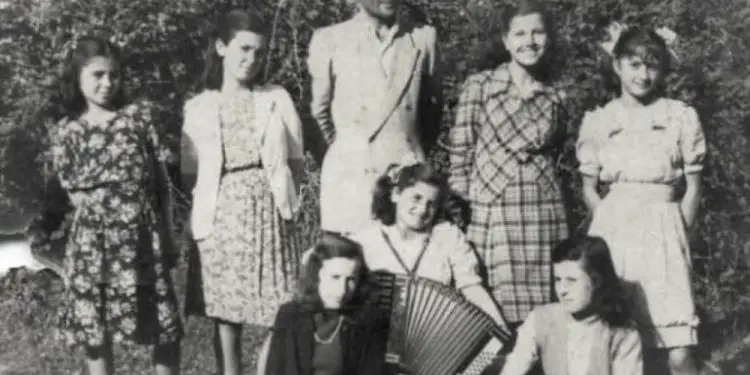
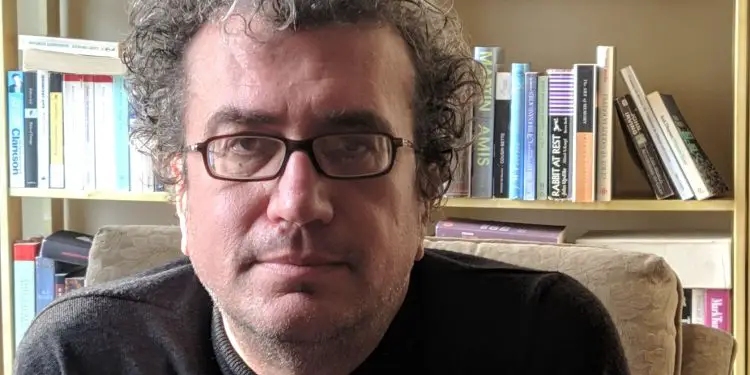
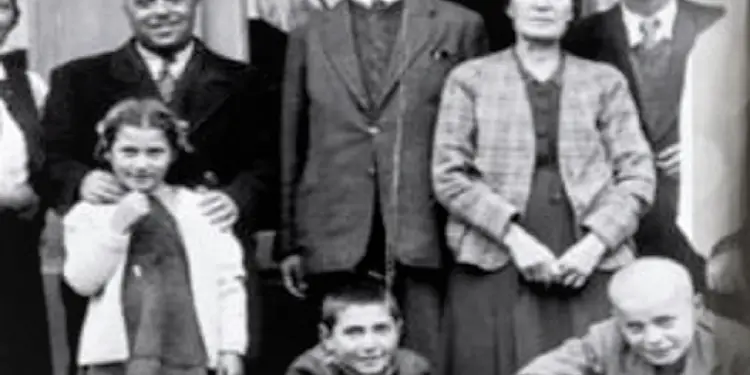
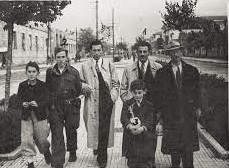
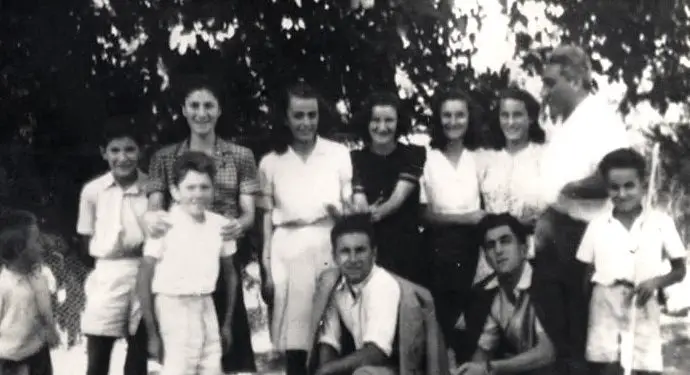

![“The ensemble, led by saxophonist M. Murthi, violinist M. Tare, [with] S. Reka on accordion and piano, [and] saxophonist S. Selmani, were…”/ The unknown history of the “Dajti” orchestra during the communist regime.](https://memorie.al/wp-content/uploads/2026/02/admin-ajax-3-350x250.jpg)
![“In an attempt to rescue one another, 10 workers were poisoned, but besides the brigadier, [another] 6 also died…”/ The secret document of June 11, 1979, is revealed, regarding the deaths of 6 employees at the Metallurgy Plant.](https://memorie.al/wp-content/uploads/2026/02/maxresdefault-350x250.jpg)




